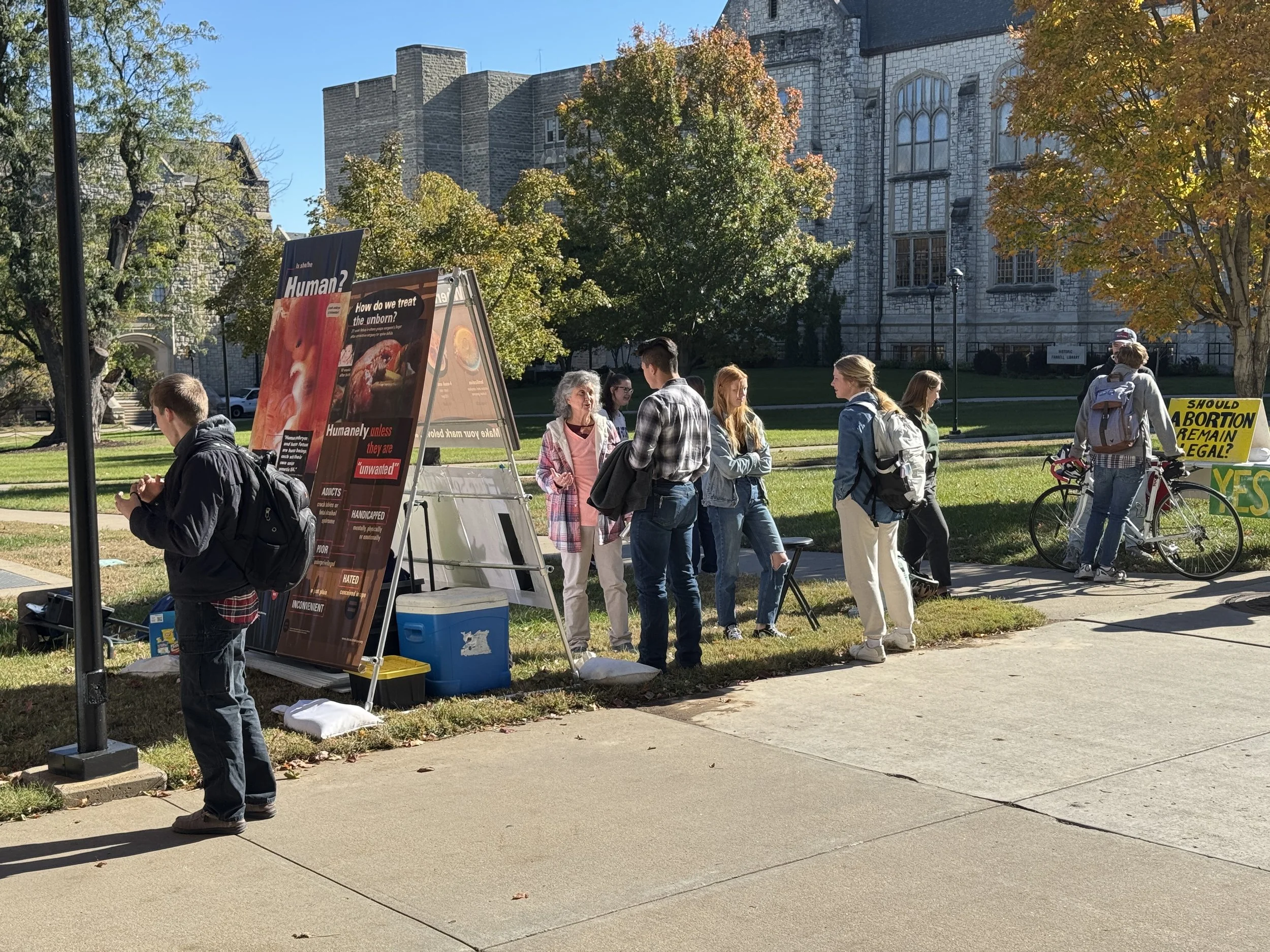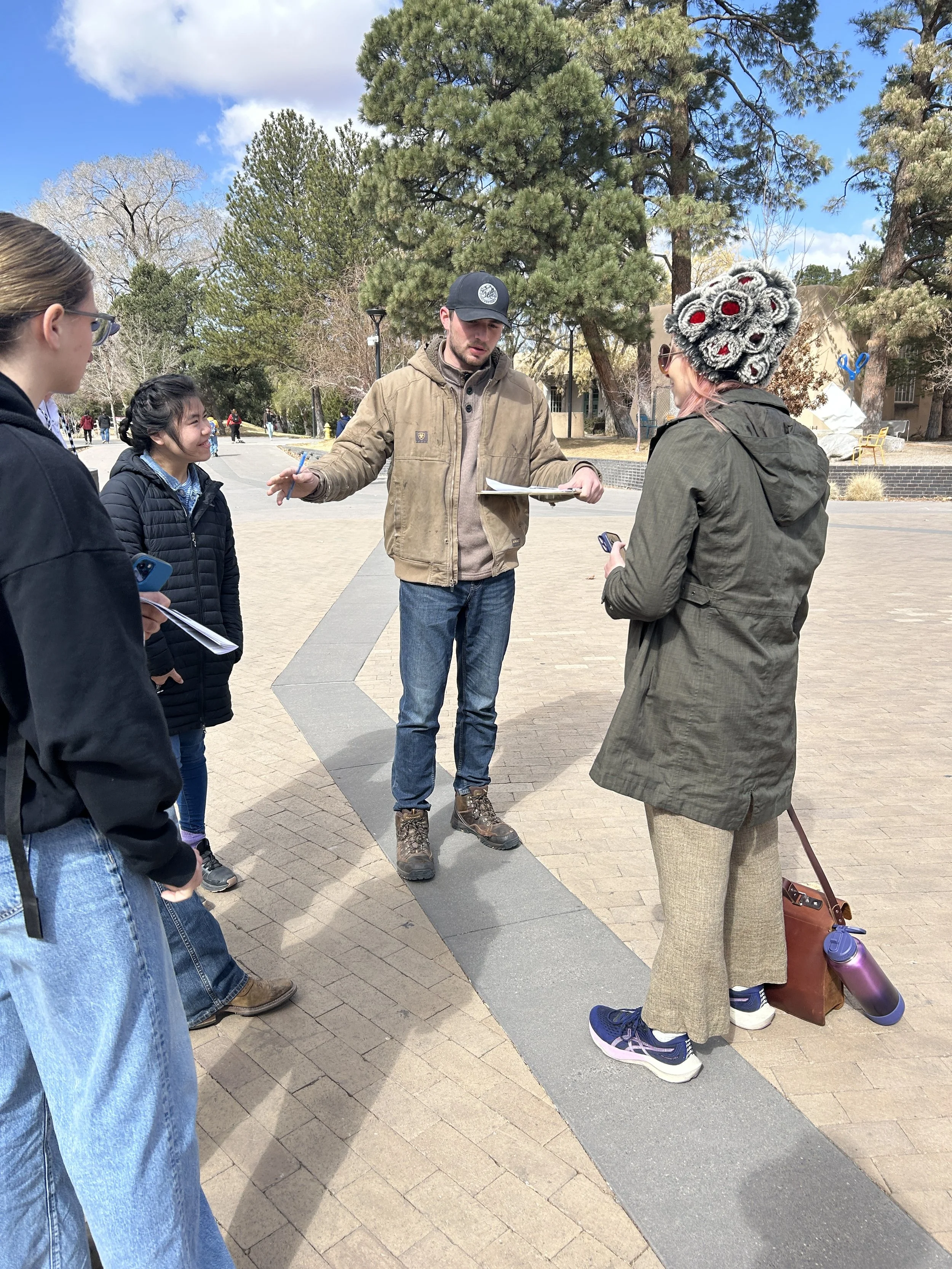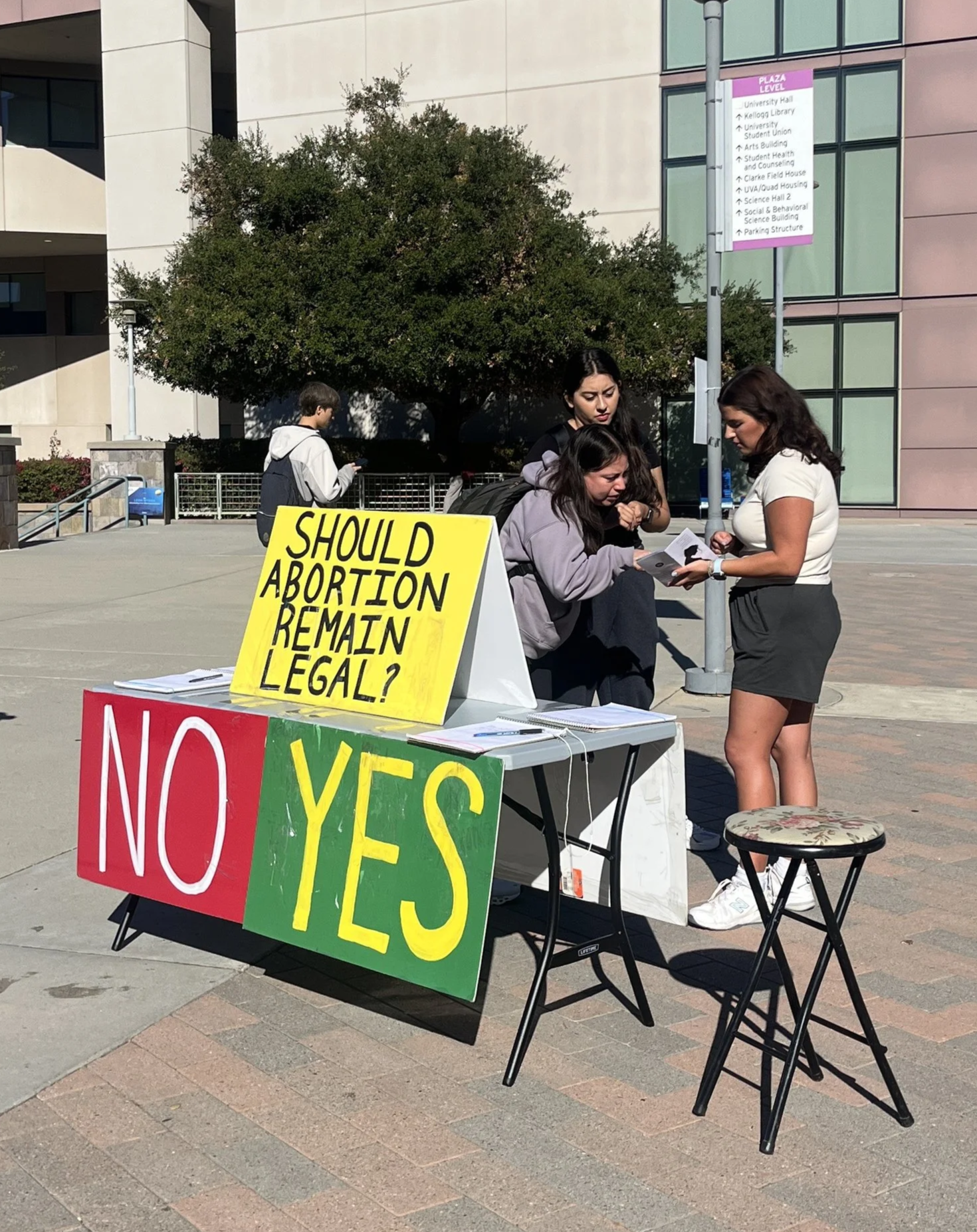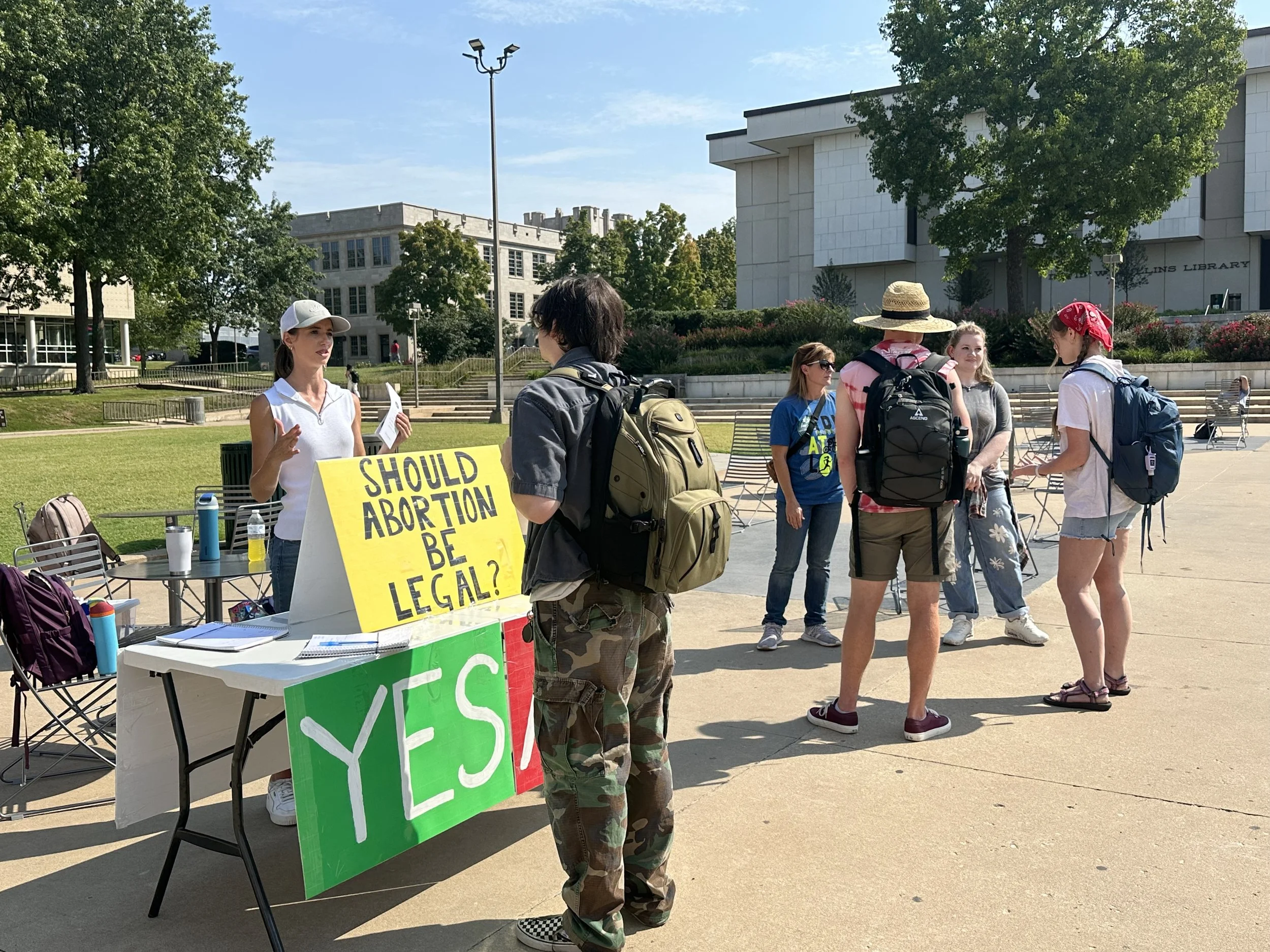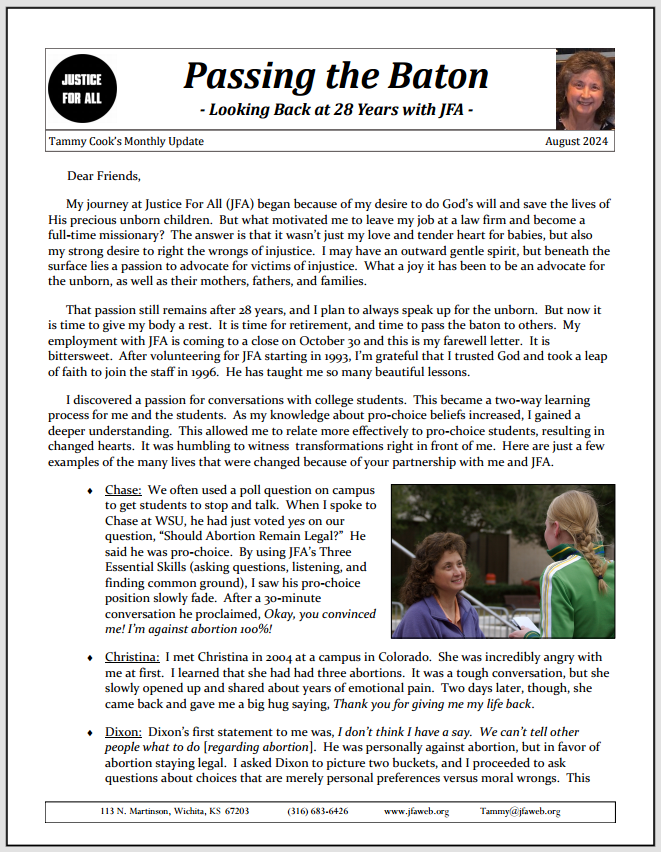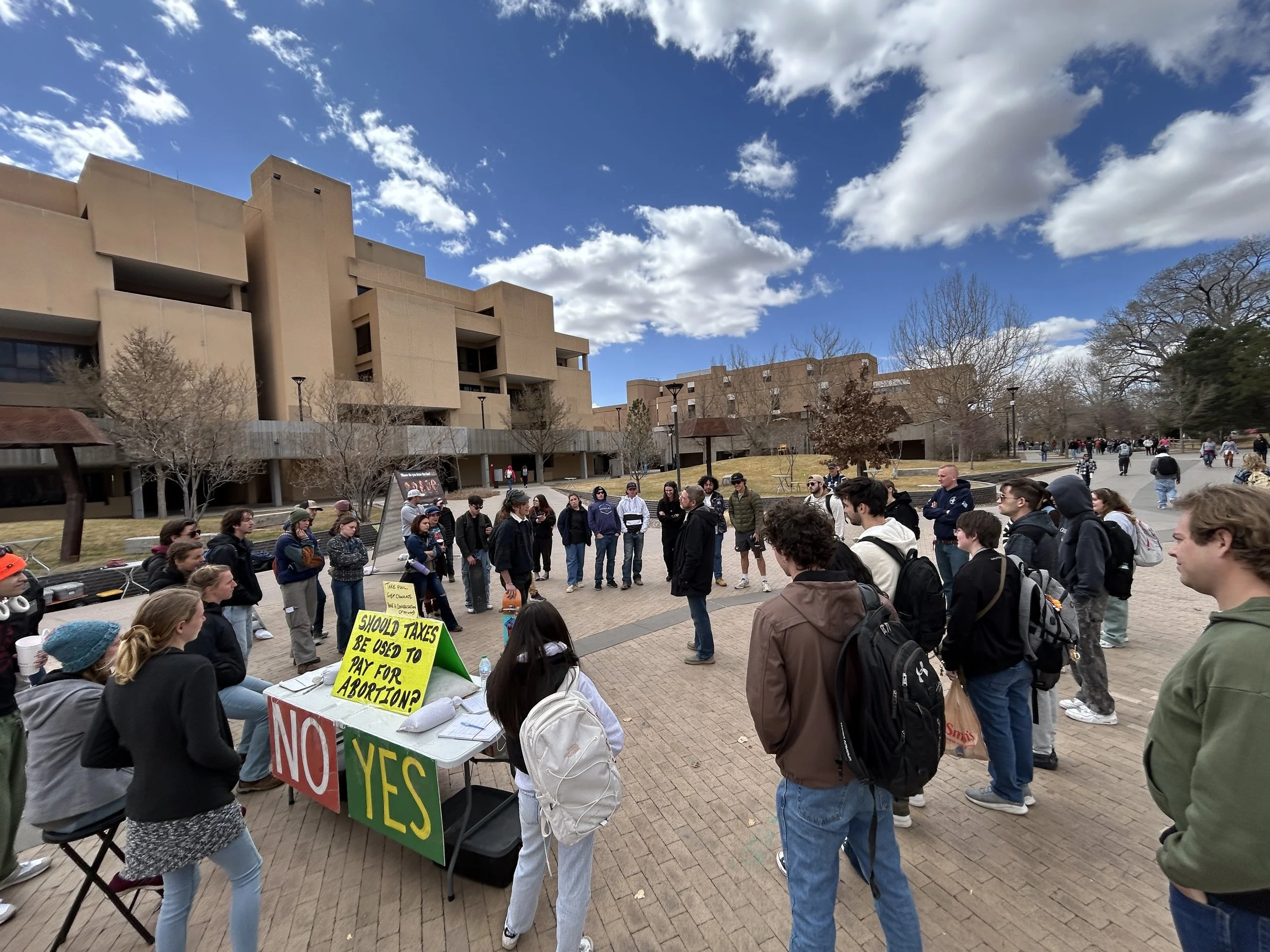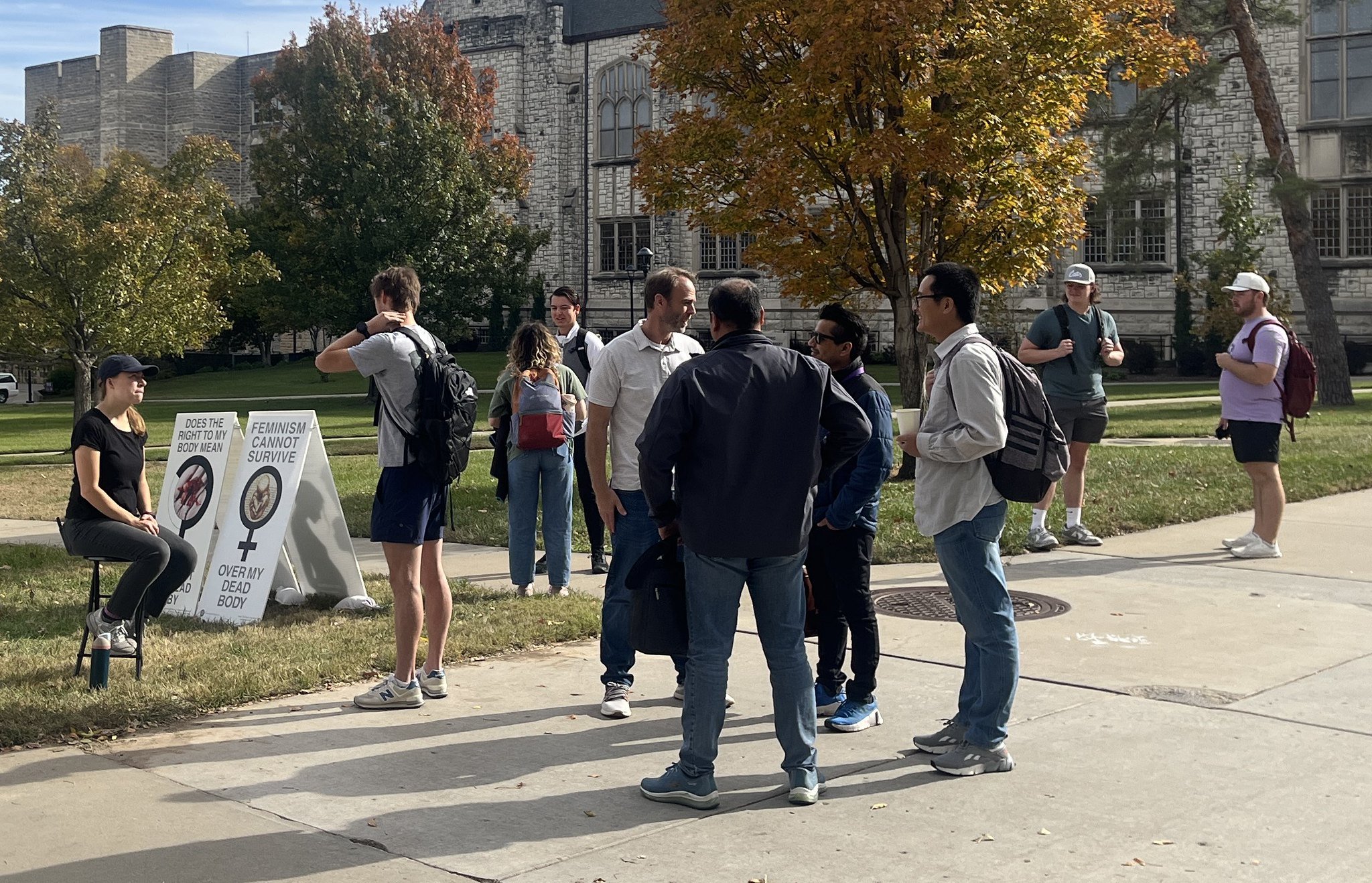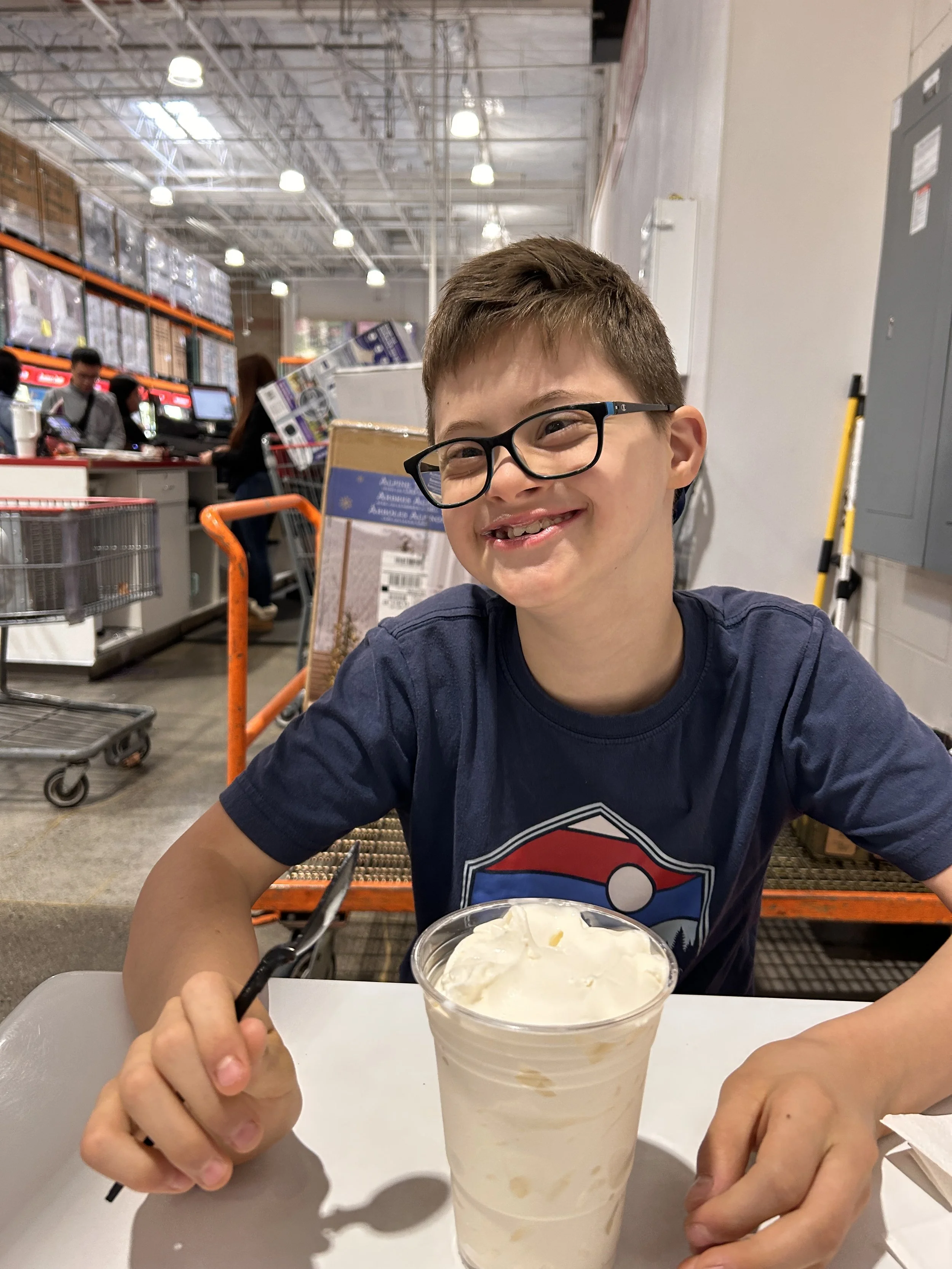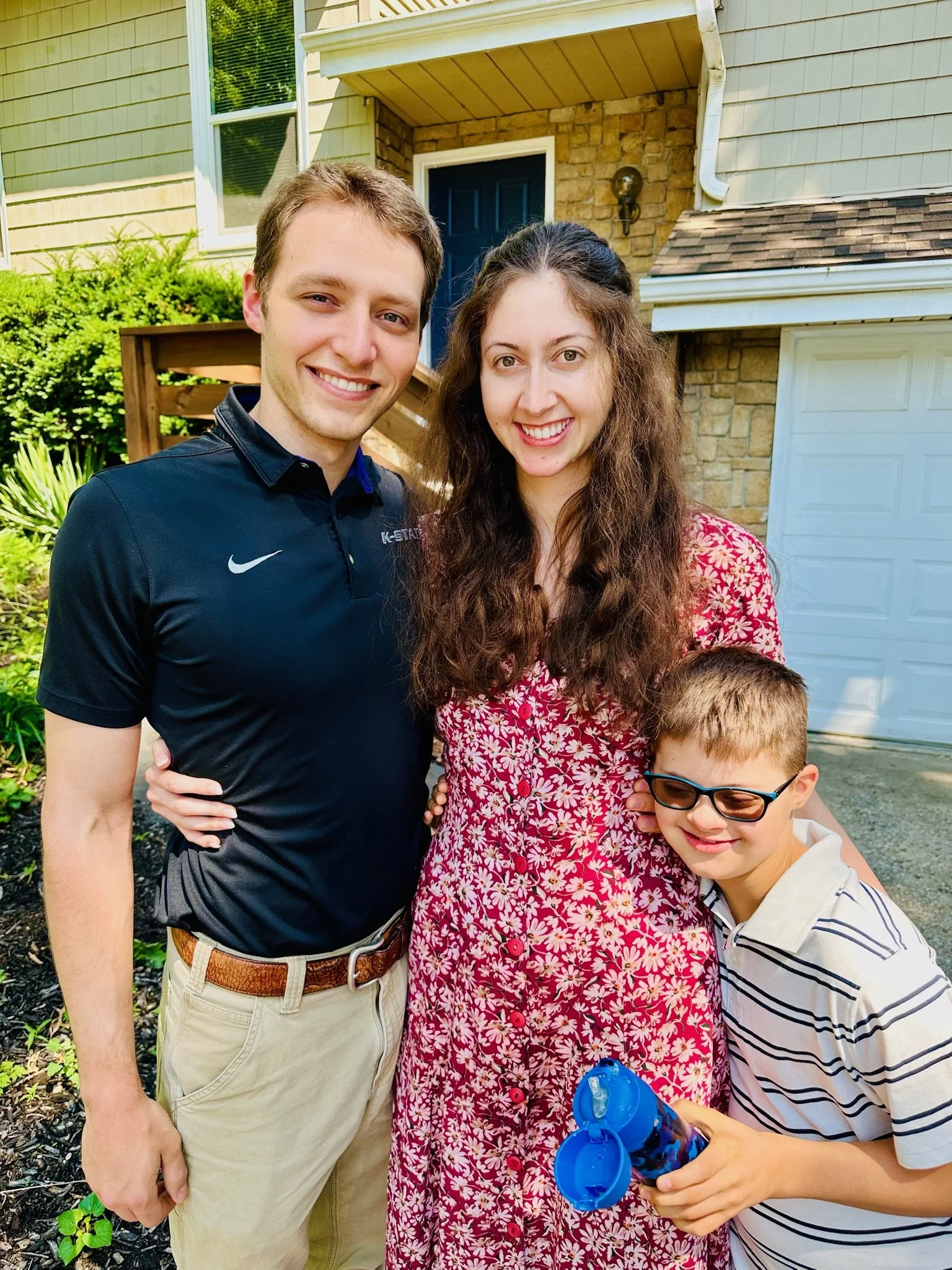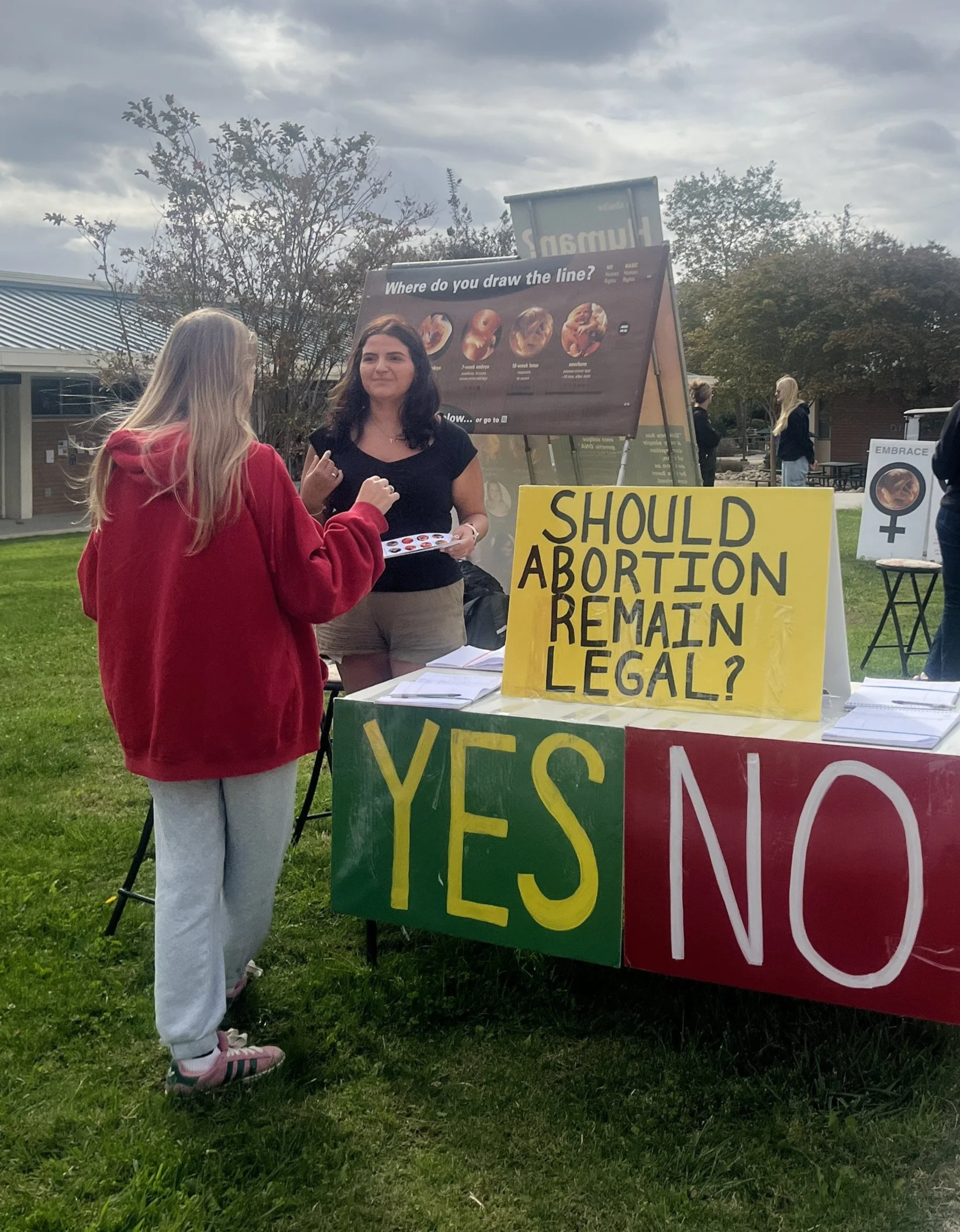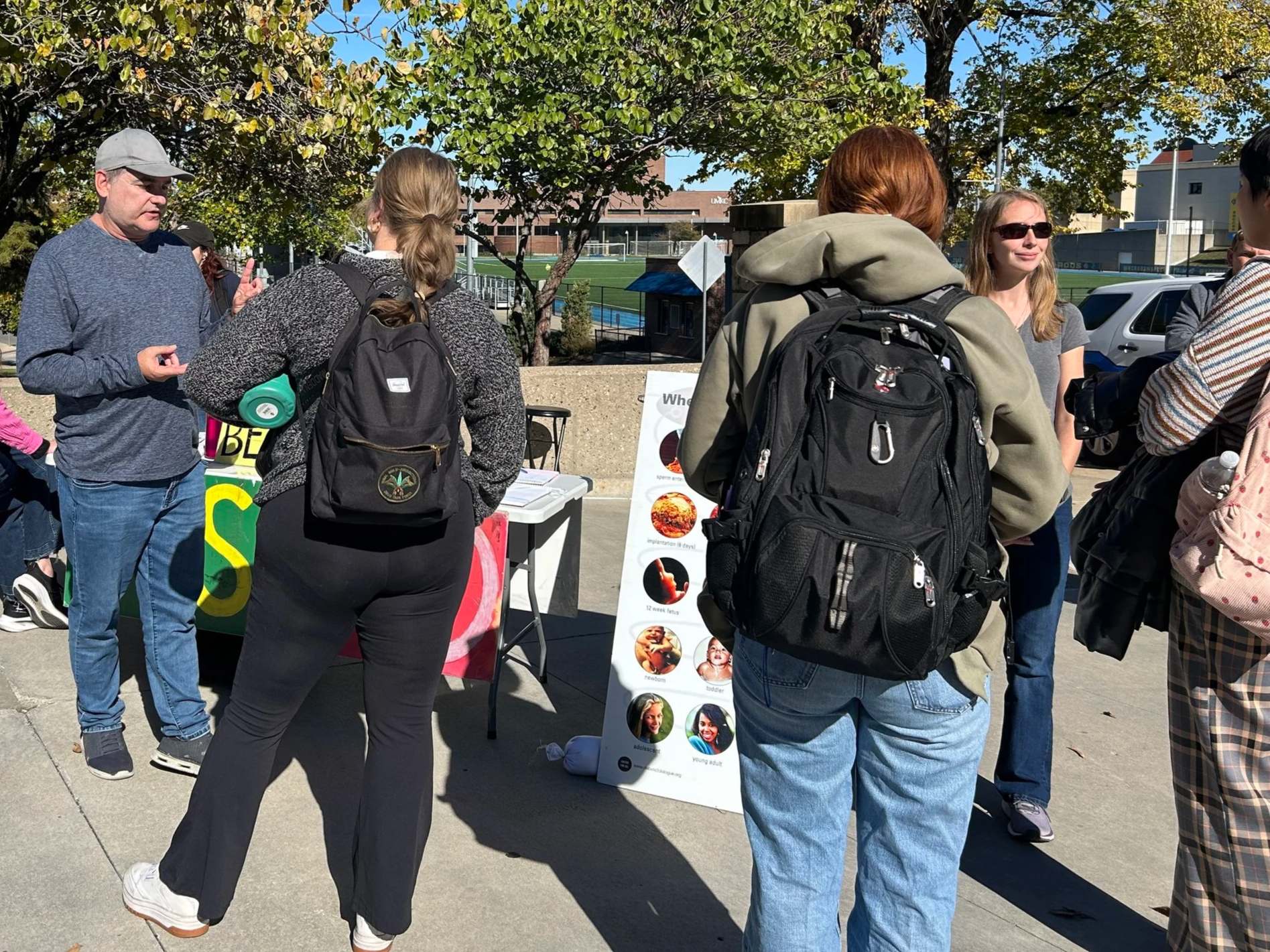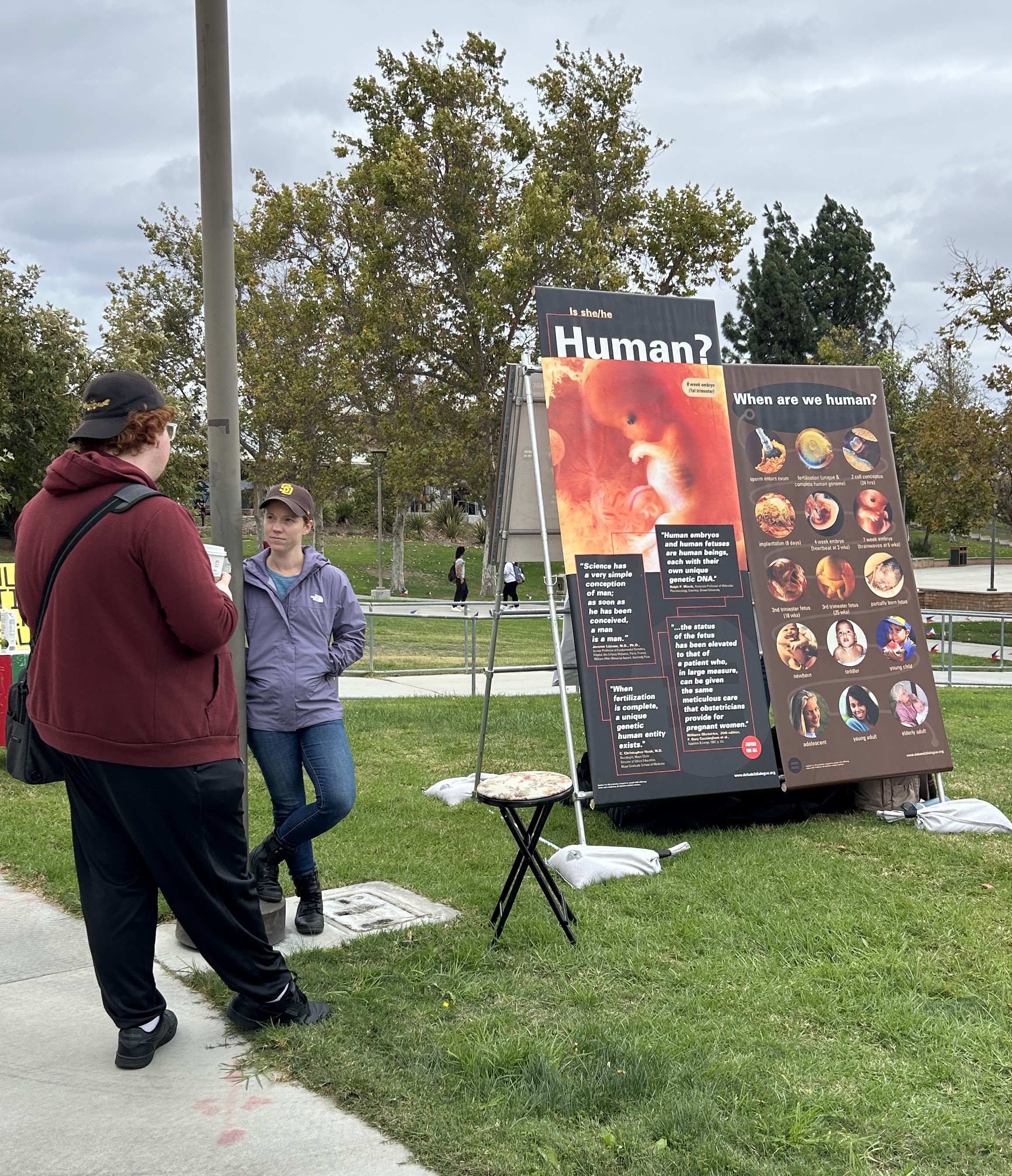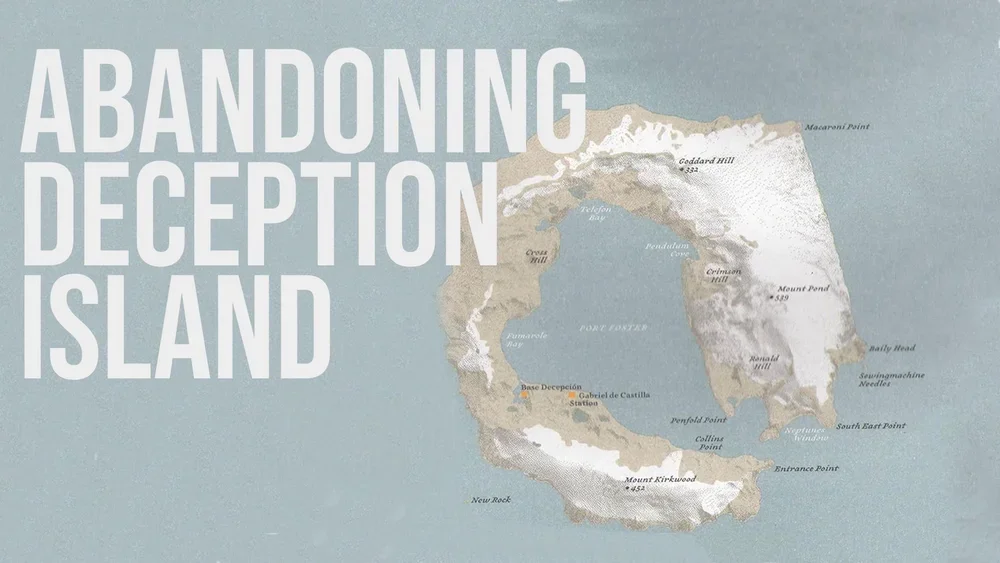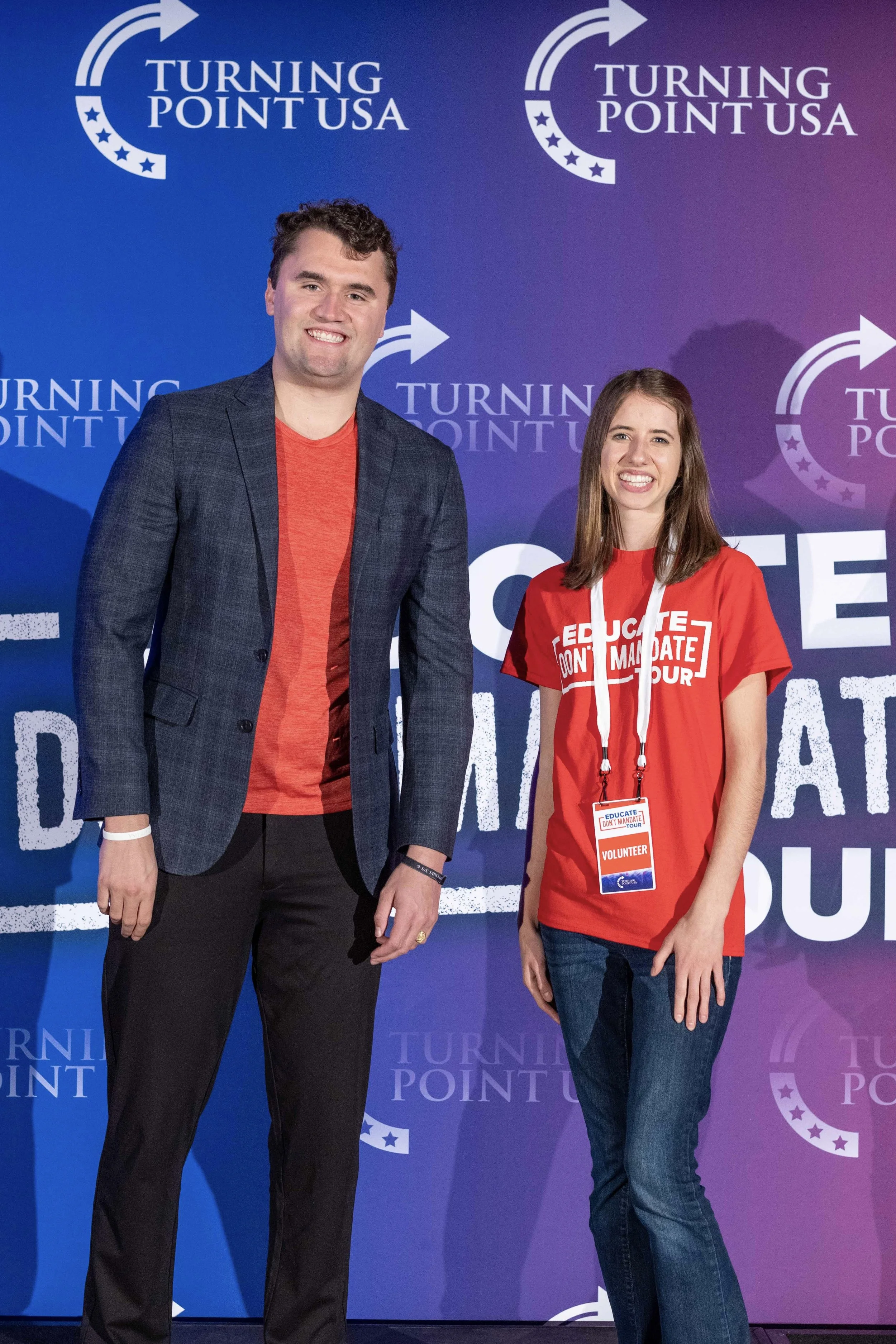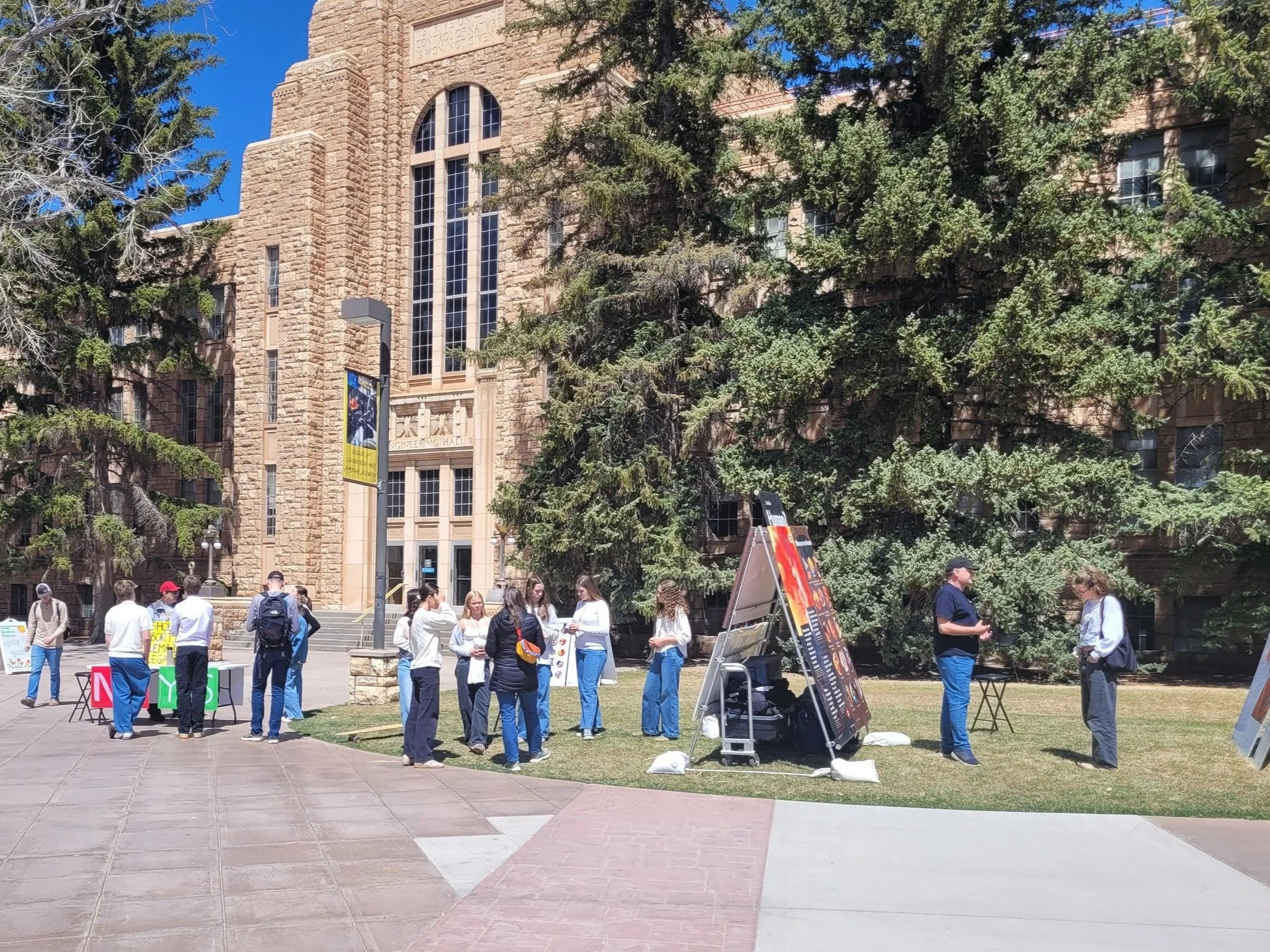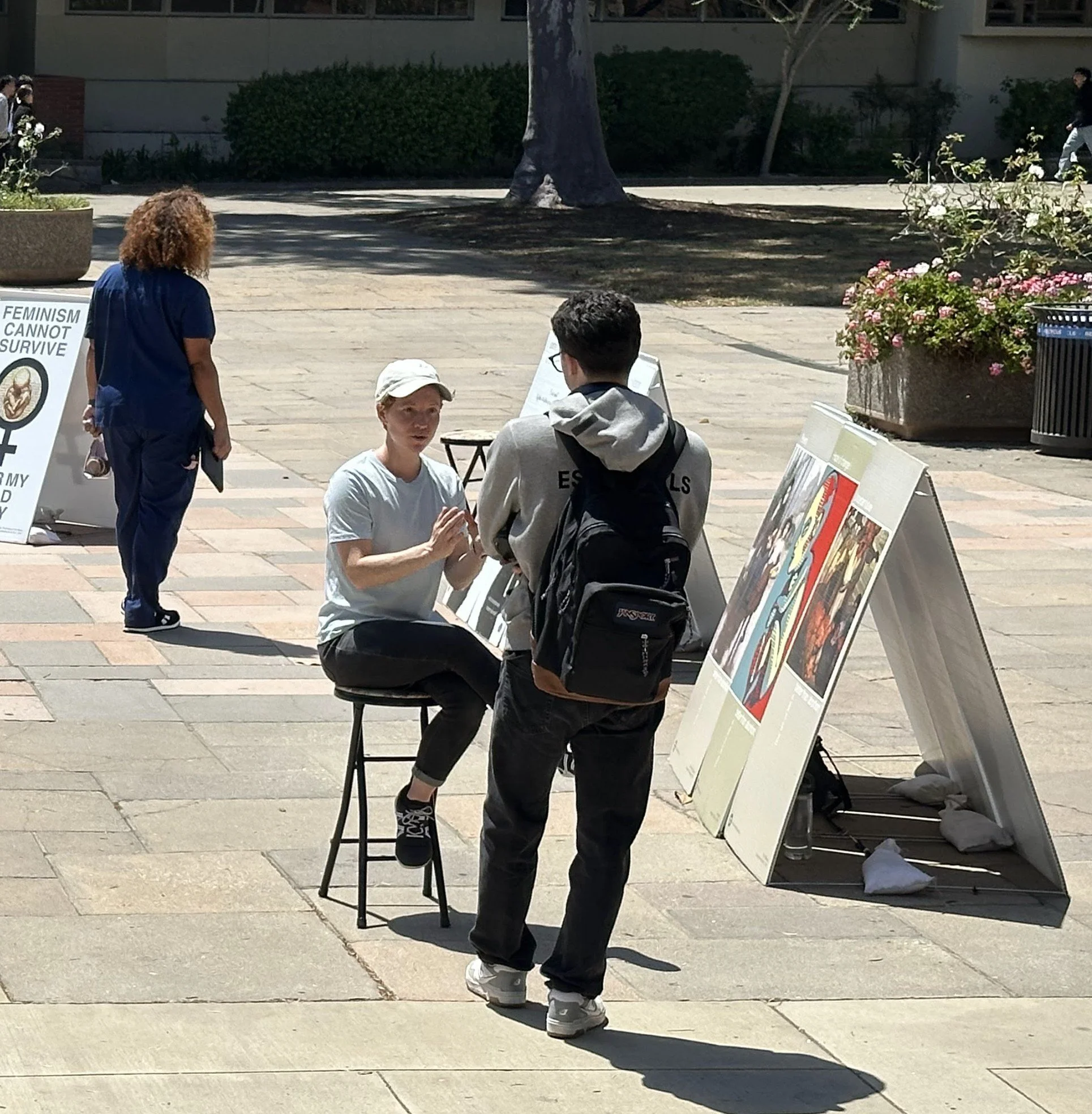Impact Report, January 2026
In this Impact Report, we pause to give (much overdue) thanks to God for one of our dear friends, Tammy Cook, who retired from 28 years of employment with JFA in fall of 2024. Tammy continues to serve JFA in volunteer roles behind the scenes. Throughout her time working for JFA, Tammy and I had many conversations about how we should approach dialogue with those who disagree. I remember her saying, almost as a way of summarizing all she had learned through thousands of conversations: “Everything is relational.” With this Impact Report I wanted to honor Tammy’s work and God’s work through her while also explaining this statement a bit, because it provides important counsel for all of us seeking to change hearts and save lives. See also Tammy’s own retrospective on her years with JFA in her farewell letter (“Passing the Baton” - jfaweb.org/tammy-farewell.
Steve Wagner, Executive Director
“Everything Is Relational” — A Tribute to Tammy Cook
Tammy talks to a student at the University of Kansas (KU) in 2016.
Tammy Cook was standing in front of the JFA Exhibit in Colorado in 2004 and asked a student passing by what she thought about our Exhibit. The student, visibly shaken, said, “What do you think I think? I’ve had three of these [abortions].” Tammy’s response at that moment could make or break the conversation. She softened her facial expression, showing compassion and concern for this young woman, Christina. She continued weaving compassion into the rest of their interaction. Tammy listened to her story and walked with her to the local pregnancy center table set up nearby (at JFA’s request). Tammy waited with Christina and introduced her to the director of the center once she was available. Then they parted, and Tammy trusted God to care for her. The next day Christina returned looking so happy she was almost unrecognizable. She explained that she had decided to participate in a post-abortion healing Bible study and return to her Christian faith. She hugged Tammy and said, “Thank you for giving me my life back.”
Tammy and other JFA team members came to Kansas State (K-State) in 2005. In November 2025, Tammy returned to K-State with our team, this time as a volunteer (pictured here).
What was the key component in this interaction? Tammy realized the key to reaching Christina’s heart was to be relational. She emphasized love and sensitivity without compromising truth. She was compassionate about Christina’s feelings and circumstances. This allowed Christina to reckon with truth that would then set her free.
Just as Tammy’s conversation cast this shadow on our Free Speech Board (left), Tammy’s impact over so many years has and will continue to make its mark on our team and volunteers.
Tammy shared many stories like this over the years in our debrief sessions and in newsletters. (Read many of Tammy’s letters at jfaweb.org/tammy-cook). We were often amazed at the impact she reported, and she always gave the glory to God, but she would also say she had learned a most important lesson about how to reach people’s hearts and their minds. Even though Tammy had mastered the intellectual facts, information, and arguments through long hours on campus and on the road debriefing with our team – she was always learning – she had found that one thing was more transformational than any intellectual argument. She would later sum up the lesson with the words, “Everything is relational.”
See Tammy’s final letter, “Passing the Baton,” (below) to read her reflections and see more pictures from her decades-long tenure with JFA. You can find it at jfaweb.org/tammy-farewell.
What Tammy meant is this: When seeking to persuade people, we have to focus first and foremost on understanding the other person, on showing concern and compassion for the person’s feelings, emotions, and circumstances. We need to find the person’s “why.” Being relational means listening to her story, seeking common ground, and taking her seriously as an intrinsically valuable person, even if she never changes her mind. This is essential not just when people defend abortion with statements that have an obvious emotional component, such as rape or life-endangering pregnancy complications. It’s essential in every conversation about any argument for abortion. I think Tammy would respond with a chuckle, “It’s essential in every conversation about anything.”
Tammy isn’t implying being intellectual is unimportant. Tammy is trying to make sure you reach the heart of the person with whom you’re speaking so your arguments and reasons can have their proper effect. When does Tammy think we should do this relational work in the conversation? At the beginning, in the middle, and at the end. After re-reading her writing on this recently, here’s how I summarized her approach:
Be relational, and patiently continue to be relational even longer than you thought necessary, then be intellectual, but make sure to continue to be relational even while being intellectual.
This may represent only a small tweak to the approach you’ve used in the past. Yes, make arguments and respond with intellectually sound answers. But all the while, make relating to the person your greater priority because sometimes that relating is what makes the greater impact.
As a pro-life advocate just starting out in my mid-twenties, I cut my teeth at Justice For All outreach events. Just as it was for Tammy, these regular outreach engagements changed me from being focused mainly on the arguments and helped me to see how important it is to be relational even while being intellectual. (See jfaweb.org/RI to explore the “relational and intellectual” approach Tammy helped JFA develop.)
These outreach engagements that made such a big difference in my development as a pro-life advocate and Christian ambassador would never have happened at all, though, if it hadn’t been for Tammy’s work behind the scenes. God worked amazing logistical miracles in large part through Tammy’s efforts in
those days as she helped create the road system we still use decades later, with our staff and volunteers still aiming to eat meals with families and sleep in host homes rather than going to restaurants and purchasing hotel rooms. That road system has enabled us to have vibrant connections with pro-life advocates all over the country while also making the most of supporter dollars. It’s great, but it takes a lot of time and energy to make all those connections.
Tammy was one of JFA’s chief connections officers, spending long hours before, during, and after trips. For example, twice each year we would train 88 students from Focus on the Family Institute (later Focus Leadership Institute) for three days, and JFA shouldered the burden of finding a bed and a breakfast for each of those students in local homes near our campus outreach in four different Colorado cities on a two-year rotation cycle. Well, actually, Tammy shouldered much of that burden, and she loved every minute of it. For the better part of a decade during our tenure at the Institute, Tammy loved connecting with each host and student, getting to know each one, and making sure the students’ basic needs were taken care of so that they could make the most of the life-changing training they got to experience for two days during the JFA campus outreach event.
Back in the JFA office in between trips to Colorado, California, Arizona, New Mexico, Texas, Missouri, and other states, Tammy served at various times as HR Director, Secretary of the Corporation, Regional Team Lead for Wichita, and she also served as advisor to JFA’s founder, David Lee. She hosted a number of JFA’s interns in her home over the years, as well as many JFA staff meetings. Although short in stature, this spunky woman filled the room with her bright smile and joyful laughter. She often reminded the team we needed to not just do serious work, but also have fun together. As a member of a small team, she did many other jobs that needed to be done, including raising her own support team that was faithful through almost three decades. (Thank you!) Tammy did all of this while also parenting three children with her husband and chief supporter, Kevin.
Tammy’s favorite JFA work, however, was seeking to change hearts and minds about abortion. She loved speaking in our seminars and talking with pro-choice students on campus, and probably more than anything else, she loved training up the next generation of pro-life advocates as a mentor in our “Seat Work and Feet Work” program, beginning in our seminars in interactive small groups and moving out to our campus outreach events where she would model our training in real-time for the students and then give them support and encouragement as they followed in her footsteps. Many of those beautiful moments of training were only possible, though, because Tammy was willing to sustain brutal physical stress. I have many memories of our team putting in very late nights searching for a host home address with only the help of a myriad of MapQuest printouts Tammy had kindly placed in folders for each vehicle. (Yes, there was a time very few people had GPS!) I remember many meetings with supporters, very early mornings setting up campus outreach exhibits, and long outreach days in the bitter cold or the bright, hot sun. Tammy and our team weathered wind, rain, and even snow. Tammy maintained a joyful spirit through it all, for she loved the people we trained and the people whose minds and hearts we sought to change.
Finally, I must mention one other strength Tammy brought to our work. She trusted God implicitly, even through health challenges and other roadblocks she and our team experienced. She placed her faith well, and I believe God was pleased to work through that faith in many instances.
In early November, Tammy made the drive from Wichita to Manhattan to join our team for an outreach event at Kansas State University. We joked that now she would need to sign a volunteer agreement … for the first time in thirty years! I watched as Tammy eagerly stationed herself near the exhibit and began engaging students in conversation. A master was back at the work again. I even was able to snap a special picture of our free speech board with Tammy’s silhouette without disrupting her conversation. What a special momento!
Thank you, Tammy, for all of your work over the years. We miss you in the daily work here at JFA, but our team and supporters are praying for you as you continue to serve Jesus in a well-deserved retirement!

